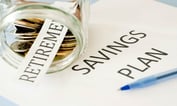As has been mentioned before in this space, green investing has much in common with what is now commonly known as ESG (for environmental, social, and governance) investing. While not all green investing fits under the ESG rubric, almost all ESG or responsible investing can meet green standards and lessons offered to advisors by responsible investors–the term that has replaced socially responsible investing–are likely to be applicable to green investments as well.
I was fortunate recently to spend an hour by telephone with Amy Domini, founder of both the eponymous Domini 400 Social Index and Domini Social Investments (the investment advisor for the four investment vehicles in the Domini family–Domini Social Equity Fund (DSEFX), Domini International Equity Fund (DOMIX), Domini Social Bond Fund (DSBFX), and Domini Money Market Account, and author (with Peter Kinder) in 1984 of one of the first books on the subject, Ethical Investing, and asked her to explain what it means to approach investing with social and environmental values in mind.
A veteran of the 1980s movement to change the South African government’s policy of apartheid, Domini realized early on that examining how a corporation treated the environment, its workers, and society at large when making decisions would not only, counter to conventional wisdom, not harm returns, but actually enhance them. So together with her partners in KLD Research & Analytics, Peter Kinder and Steve Lydenberg, she created the Domini 400 Social Index to prove her point.
“I didn’t buy this ‘Anything that limits your investment universe’ argument, since every investment advisor has a method of limiting the investment universe in order to enhance returns,” she recalls. “It seemed to me a specious argument being made against the application of things that were not historically considered financial.”
Since its launch in 1990, the Domini 400 on a cumulative basis has outperformed the S&P 500, although the period from 2000-2008 was a negative one for it. Domini attributes that negative performance to the shift to a war economy, which favored companies not included in the index or in Domini fund holdings. Those eight years of negative performance led Domini to make one of the hardest decisions she says she’s ever faced, abandoning the Domini 400, which is now owned by RiskMetrics Group and with which she has no affiliation, as the benchmark for her equity funds and moving to a proprietary quantitative research methodology designed by Wellington Management.
Identifying the Responsible Investor








 May 01, 2010 at 04:00 AM
May 01, 2010 at 04:00 AM









